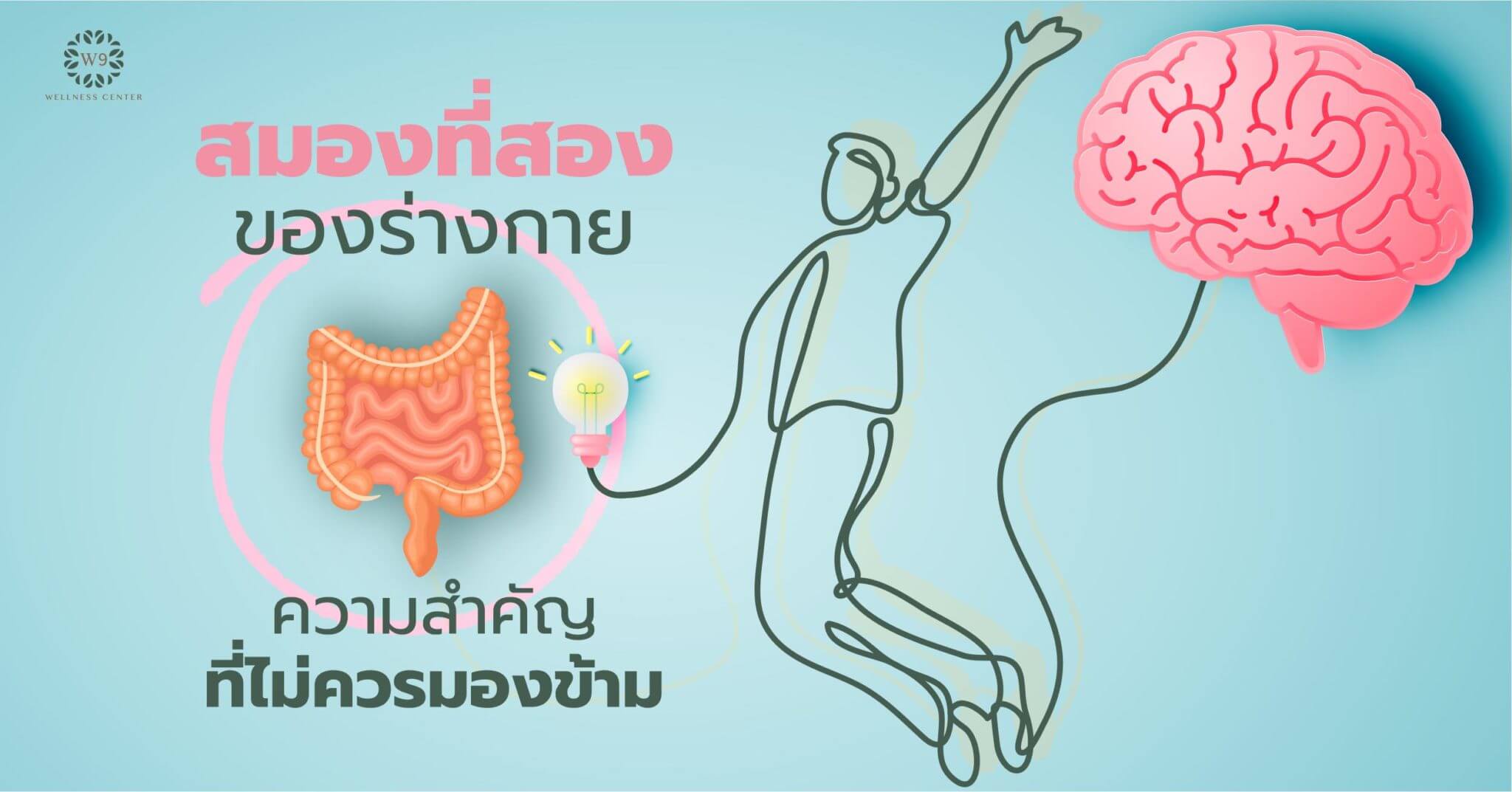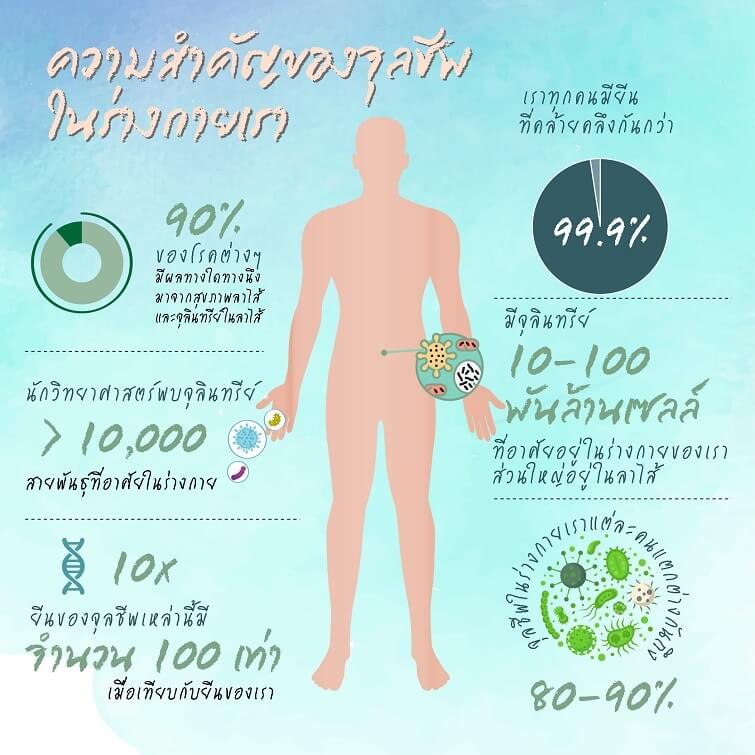
"Intestinal balance"knowOr not? 70-80% of the “immune system” in our entire body Gathered together in the "intestines"
Normally, we like to think that germs enter through our skin, but actually, if our skin doesn't have a wound, germs have almost no chance of entering our body. What we didn't expect was This is the food that we put into our mouths. is the one that carries various germs enter the body without realizing it Both contaminants from food and utensils used intestinal balance

The intestine is used to absorb nutrients, vitamins, and minerals that we eat. It also serves to eliminate waste or toxins within the body. Because when we have good intestines Our health is also good, whether it be our mood, skin, energy, metabolism, sleep, digestive system.
But if the intestines become contaminated with toxins until they enter the bloodstream It causes the body to feel tired. Chronic muscle pain, migraine headaches, allergies, autoimmune diseases, obesity, stress, depression, anxiety, obsessive compulsive disorder, ADHD in children, insomnia, dementia, Alzheimer's, or even cancer.
Therefore, if you are wondering about the disease or symptoms below. The doctor recommended that we first explore our intestines.
Duties as mentioned above The intestines are also considered to be the home to various neurotransmitters. It's not just about the stomach. But also in other areas, such as when we are excited. or anxiety in various situations First date Makes us feel like butterflies are flying in our stomachs. Or as Westerners call it, “Butterfly in the Stomach”


Since we were born We will receive microorganisms that have been passed on from our mothers. Especially natural birth These microorganisms serve to teach white blood cells how to differentiate. Who is a friend and who is an enemy? Helps digest and separate nutrients. Synthesizing vitamins helps regulate the metabolism. and chemical processes at the molecular level in the body
When the body has fewer microorganisms in the intestines It is associated with many chronic diseases such as obesity, diabetes, fatty liver, coronary heart disease. Neuropsychiatric disease including other infectious diseases It's like the saying "You are What You Eat" because when your intestines are sick. The body and mind will become sick as well.
In addition to eating behavior Eating food without being careful of food contaminants Including other factors such as stress, lack of sleep, inflammation, infection, chronic inflammatory bowel disease. Everything affects the intestinal wall or the body's immune system and the microbial balance, the entire cycle, which is considered the root cause of all kinds of illness.

But we can take care of our intestines starting today. By eating natural foods, emphasizing plant-based foods such as whole grains, avoiding sugar, flour and refined rice. Eat a variety of fruits and vegetables, all colors and phytonutrients. Because no matter what the balance of our microorganisms is If we intend to change our behavior strictly from today Our health can be better.
Do you see that It is not difficult for us to return to taking care of our intestines with care.
book Healthitude happiness (Udom)motto
Dr. Pichak Wongwisit (Dr. Bai)
Cancer is considered the number 1 cause of death for Thai people and has been occurring continuously for a long time.
Day by day, the problem of air pollution affects the health of people in this era quite a bit. Especially people living in cities who have to face PM2.5 dust, car fumes from exhaust pipes, and microplastics.
Stressed until the body is in trouble Without coffee, you have no energy? “Adrenal Fatigue” believes that many working people have had to deal with the problem of accumulated stress to the point where the body is unable to take anything else. Can't concentrate on work